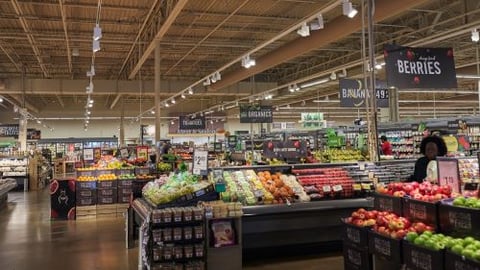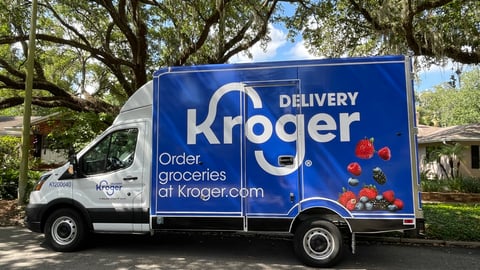How 'Instant Needs' Companies Are Redefining Online Grocery
A few weeks ago, I was babysitting my niece and nephew, and we were out of groceries. Is there anything worse than taking care of a 7- and 14-year-old who are hangry?
I grabbed my purse and keys, and headed for the front door to go to the grocery store, but then it hit me: “instant needs.” I put my keys down, took off my shoes, grabbed my cellphone and thought about my recent trip to Las Vegas.
A few days earlier in Nevada, I had attended Groceryshop and the NGA Show, where ultra-fast grocery delivery and micro-fulfillment were the major themes. Next-day, two-hour, one-hour and 30-minute delivery are no longer the holy grail; now companies with names such as 1520, Jokr, Fridge No More, Getir, Gorillas, Dija, Buyk and Gopuff promise low-fee, no/low minimum order, no-hassle grocery delivery in less than 30 minutes.
Making a recipe and realize that you forgot to buy shredded mozzarella? Experiencing COVID-19 symptoms and too sick to go buy an at-home test? Battling deadline fatigue at midnight and need a quick caffeinated pick-me-up? All of these vertically integrated startups can deliver cheese, diagnostic tests and Coca-Cola in less than half an hour from dark stores or micro-fulfillment warehouses operating 24 hours a day.
Specifically, the CEO and co-founder of Philadelphia-based Gopuff, Yakir Gola, explained at Groceryshop that when he started his company, his “natural instinct was to control the customer experience from day one, because we’ll have better margins long-term, by making margins off product sales and by controlling the customer experience through the delivery time and the actual experience. We call our category ‘instant needs.’ It has evolved tremendously from eight years ago, and it is continuously evolving.”
Gola’s startup delivers more than 4,000 SKUs in 20 minutes or less from 500 micro-fulfillment centers (MFCs) — and growing — across the United States and in Europe for a flat fee of $1.95 per order. He told the Groceryshop audience that his company, which revealed a $1 billion funding round in July and is valued at around $15 billion, is opening 40 to 50 MFCs a month in the United States.
“The delivery fee is only $2, because our margins don't come from service fees from restaurants or other stores,” he explained. Gopuff also doesn’t have a minimum order, so if all you need is a bag of cheese or a Coke, that’s all you have to order.
Gopuff and other instant-delivery grocers leveraging micro fulfillment are raising the stakes in the last-mile race, and grocers of all shapes and sizes are taking notice. Recently, Kroger teamed up with Instacart to offer fresh groceries, household items and other key essentials delivered in 30 minutes nationwide (the Kroger service has higher fees and a $10 minimum order).
The road to profitability in grocery e-commerce is elusive, but that means nothing to consumers, who expect their vegan waffles to be delivered in 15 minutes flat. Low-cost, no-minimum, ultra-fast delivery is becoming a must-have for grocery retailers if they aim to compete with unicorns such as Gopuff.
My experience ordering Gopuff groceries while I was on babysitting duty couldn’t have been any more magical: I ordered around eight grocery items – chilled, frozen, ambient – and they all arrived in a sealed plastic bag at my doorstep exactly 20 minutes later. Turning the mundane into magic sounds like a good value proposition for the grocery store of the future.




